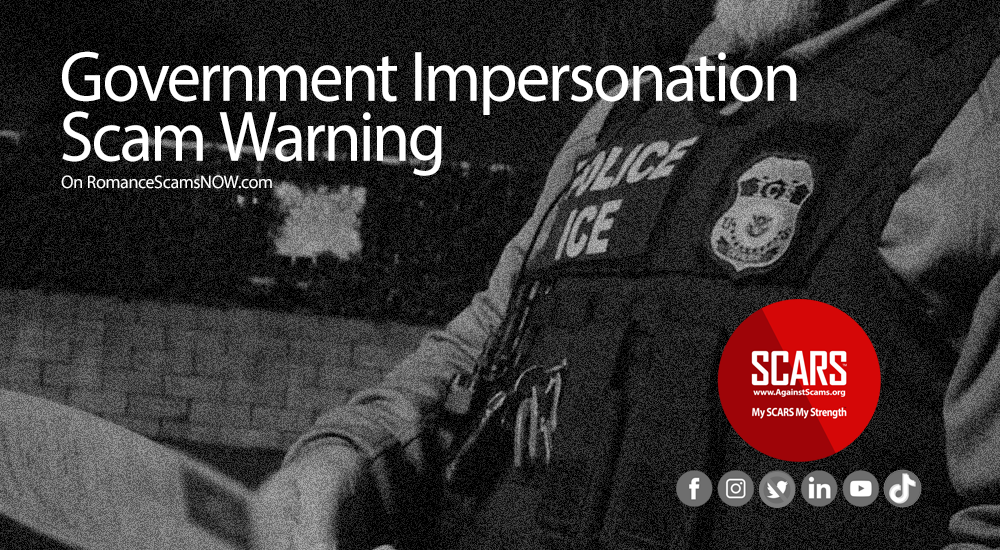Government Impersonation Scams Are Widespread And Expanding!
The ongoing widespread fraud schemes in which scammers impersonate law enforcement or government officials in attempts to extort money or steal personally identifiable information is exploding.
HOW IT WORKS
Scammers will often spoof authentic phone numbers and names and use fake credentials of well-known government and law enforcement agencies.
Scammers will use an urgent and aggressive tone, refusing to speak to or leave a message with anyone other than their targeted victim; and will urge victims not to tell anyone else, including family, friends, or financial institutions, about what is occurring.
Payment is demanded in various forms, with the most prevalent being prepaid cards, wire transfers, and cash, sent by mail or inserted into cryptocurrency ATMs. Victims are asked to read prepaid card numbers over the phone or text a picture of the card. Mailed cash will be hidden or packaged to avoid detection by normal mail scanning devices. Wire transfers are often sent overseas so funds almost immediately vanish.
Scam tactics continually change, but often share many of the same characteristics. Examples of these tactics can include:
- The victim’s identity was allegedly used in a crime, such as a drug deal or money laundering. The victim is asked to verify their identity, including social security number and date of birth. The victim is threatened with arrest, prosecution, or imprisonment if they do not pay to remove charges or assist in the investigation against the “real” criminals.
- The victim is accused of not reporting for jury duty and is being fined, or the victim missed a court date and there is a warrant for their arrest unless a payment is made.
- Text messages from spoofed Government agencies requesting information regarding passport or driver’s license renewals.
- A notification that your personal information has been compromised and to contact the agency immediately.
- Medical practitioners are contacted to warn of the expiration of their medical licensing, or their license was utilized to conduct a crime. The scammers will threaten the revocation of their license or registration, and the medical professional is compelled to renew their license to protect their professional reputation.
Many victims report extortion by law enforcement and government impersonators in connection with other types of fraud.
- A romance scam victim begins to realize they are being defrauded and stops communicating with the scammer. Often, the victim is contacted by a law enforcement impersonator attempting to extort the victim to clear their name for participating in a crime or to aid in the capture of the romance scammer.
- A lottery scam victim is contacted by law enforcement to collect taxes and fees. Sometimes the impersonator will state the victim is caught in a scam, and the victim needs to pay to get their money back.
- A victim is contacted regarding a government grant, but must pay taxes and fees to claim their funds.
PROTECT YOURSELF
Law enforcement authorities or government officials will never contact members of the public or medical practitioners by telephone to demand any form of payment, or to request personal or sensitive information.
Any legitimate investigation or legal action will be done in person or by an official letter. Always ask for credentials to validate their identity.
- NO legitimate law enforcement or government official will request payment via prepaid cards or cryptocurrency ATM.
- Never give personally-identifying information to anyone without verifying the person is who they say they are.
- If you are contacted, get their identification – names & badge number – then hang up and call the official number for that agency to confirm and speak to a real agent or other person about this.




Please Leave A Comment - Tell Us What You Think About This!